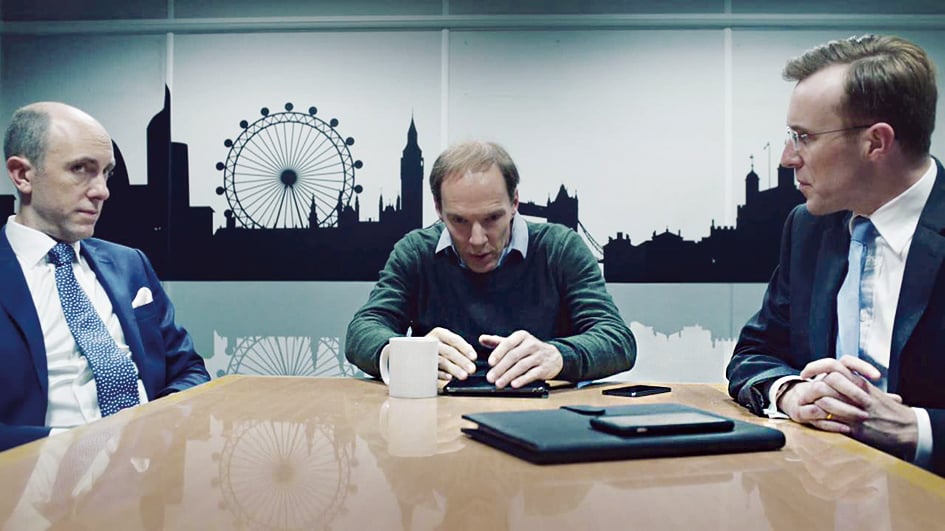Review
Brexit, a collective psychodrama
Before it was litigated in Parliament, Brexit was litigated in pop culture. It started with ‘Brexit: The Movie’ and continues with novels, movies and TV series. ‘Cinema is the strongest weapon.’

In the almost three years since the referendum and the two since the Article 50 notification on March 23, 2017, Brexit has torn rifts within families, couples and society in general, mixing up the public and the private and unveiling a political dimension to regular life that had never quite disappeared. The devastating force with which the British exit has torn through the fabric of the UK has produced a new crop of cultural works that seek to describe, analyze and offer a critique of what is clearly a collective psychodrama about identity.
In a country dominated by “soft power” (a needless Anglicism that simply “rediscovers” Gramsci’s still-applicable notion of hegemony), popular culture immediately took up the place of interpreter of the political and emotional turmoil that is running through British society, through a series of novels, films and documentaries that have recently come out. Here, we will limit ourselves to listing and offering some remarks about a few of the notable ones.
“Cinema is the strongest weapon,” goes the well-known totalitarian adage, and the Eurosceptics behind Brexit: The Movie knew it very well—a film making the case for Leave, which came to light from the (allegedly benign) convergence of two factors: a crowdfunding campaign by fervent Eurosceptic citizens and a large donation by an investment fund. Released in 2016, before the referendum, it has certainly left an indelible mark on the collective British imagination. It consists of little more than an assembly of clichés about the allegedly stifling bureaucracy of Brussels and about how this is holding back the extraordinary potential of a British capitalism that would be otherwise liberated and deregulated.
Despite the crudeness of the historical picture it paints—for instance, it sings the praises of the Industrial Revolution as a British achievement due entirely to innovation and the invisible hand, pointedly ignoring the exploitation of workers, including underage workers, that went with it—it nevertheless offers a useful look into the ideology that underlay the choice to leave the EU in the name of a demagogic “Make Britain Great Again.”
We move on to something of a very different caliber: the documentary miniseries Inside Europe, 10 Years of Turmoil, which is, unsurprisingly, a BBC production, bearing the hallmarks of the best works of the British public information network: direct access to the protagonists of the events in sensational interviews, an apparent absence of partisanship, and excellent editing, narration and sound design.
In particular, the first of its three episodes clearly shows how David Cameron’s disastrous choices and the longstanding internal civil war of the conservatives on the issue of Europe were compounded by the Eurozone crisis.
The interview with Donald Tusk—among other interviews featuring Nicolas Sarkozy, Mark Rutte and George Osborne, to name just the most important figures—is the most illuminating in this regard. Tusk candidly recalls how during their conversations before the referendum, David Cameron—a figure who has now become the object of both public derision and public scorn—had confided in him that there would never be any referendum, since the Liberal Democrats—then in coalition with the Tories and strongly pro-European—would never allow it. But then, quite unexpectedly, Cameron won the 2015 elections and found himself with his back against the wall. The rest is history.
Another movie well worth mentioning is Brexit: The Uncivil War, a TV production in which star actor Benedict Cumberbatch plays a very convincing Dominic Cummings, the communications strategist of the Leave campaign who invented the infamous slogan “Take back control,” and who succeeded in coalescing a mixture of illusion, resentment and wishful thinking in both the country’s impoverished working-class, de-industrialized North and in its prosperous, petit-bourgeois South, combining their votes to reach 52% for Brexit. Cummings is the consummate spin doctor, an Alastair Campbell (Tony Blair’s head of communications) taken to the next level, and a symbol of the complete metamorphosis of contemporary politics into a Frankensteinian patchwork of advertising jargon, market surveys and obsessive polling.
We cannot conclude this brief review without mentioning a novel as well. This is just one out of the many literary works inspired by this historic moment, but it deserves a special mention, if only for the popularity of its author. Jonathan Coe is one of the most enjoyable “popular” storytellers of his generation, and his Middle England (published in Italy by Feltrinelli) offers his many fans the closing chapter of a trilogy that follows the adventures of a group of classmates against the background of the historical events that made headlines in the UK over the past 30 years. This final instalment, over 400 pages in length, covers the decade between the 2008 financial crisis and the Brexit referendum.
The book immediately garnered the much-coveted praise of being “the great Brexit novel,” and offers a vast and wide-ranging picture of England’s “Middle” part: white, middle class, and oscillating between the narrow-minded outlook of right-wing Euroscepticism and the hypocrisy of the neoliberal center-left “elite.”
Originally published at https://ilmanifesto.it/lo-psicodramma-collettivo-nella-cultura-pop/ on 2019-03-12
